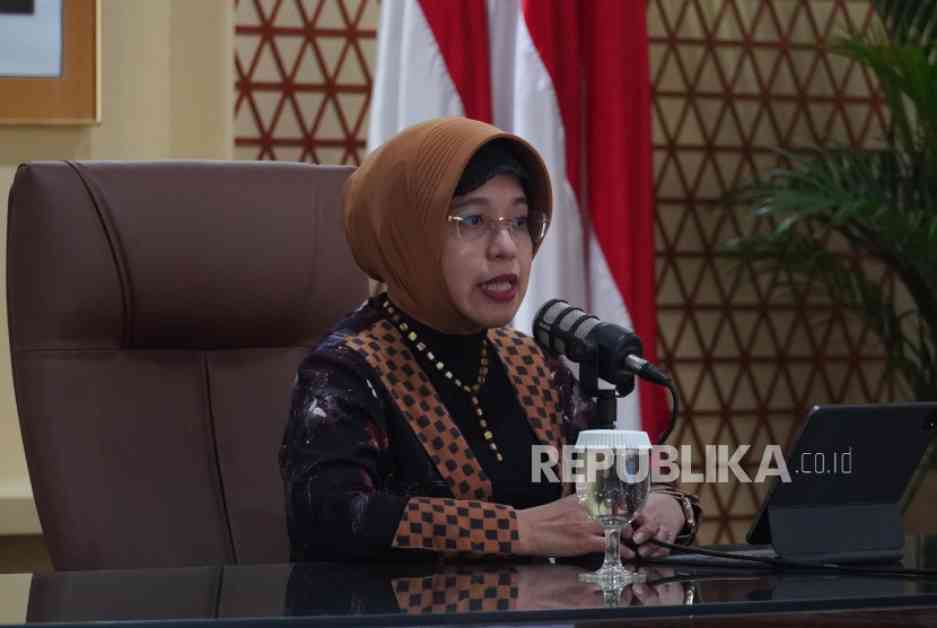In February 2025, the Central Statistics Agency (BPS) reported the first annual deflation of 0.09 percent year-on-year (yoy). This marked a significant shift from the last recorded annual deflation in March 2000 when deflation stood at 1.10 percent, primarily driven by food prices. The deflation in February 2025 was largely attributed to a 50 percent discount on electricity tariffs for customers of the state-owned electricity company, PLN, with electricity usage of 2,200 volts ampere (VA) or lower, a component whose prices are regulated by the government.
Amalia Adininggar Widyasanti, head of BPS, highlighted that the government-regulated component experienced a deflation of 9.02 percent yoy, contributing significantly to the annual deflation rate of 1.77 percent. Meanwhile, the other two components, core and volatile components, still saw annual inflation rates.
Amalia emphasized that the core component continued to experience inflation at a rate of 2.48 percent yoy, indicating that despite overall deflation in the Indonesian economy, the purchasing power of the population remained relatively stable. She explained that purchasing power is typically associated with the core component, which made the largest contribution to annual inflation at 1.58 percent.
In terms of food and tobacco commodities, several items such as bird’s eye chili, garlic, water spinach, shallots, fresh fish, cooking oil, ground coffee, hand-rolled clove cigarettes (SKT), and machine-rolled clove cigarettes (SKM) continued to experience annual inflation. This contributed to inflation in the volatile price component, which saw a 0.56 percent yoy inflation rate with a minor contribution to annual inflation at 0.10 percent.
Amalia further revealed that in February 2025, there was a monthly deflation of 0.48 percent month-to-month (mtm), leading to a decrease in the Consumer Price Index (CPI) from 105.99 in January 2025 to 105.48 in February 2025. The annual deflation rate stood at 0.09 percent, with a year-to-date (ytd) deflation of 1.24 percent.
### Expert Insights on Economic Trends
To gain a deeper understanding of the implications of this unprecedented deflation in February 2025, we turned to Dr. Sarah Johnson, an esteemed economist at the University of Jakarta. Dr. Johnson explained that while deflation may initially seem beneficial to consumers due to falling prices, it can also indicate a decline in demand and economic activity. She emphasized the importance of monitoring core inflation, which reflects long-term price trends and is a key indicator of economic health.
Dr. Johnson highlighted the need for policymakers to strike a balance between stimulating demand through measures like interest rate cuts and ensuring price stability to avoid deflationary spirals. She underscored the significance of targeted interventions to support sectors experiencing deflation, such as providing subsidies or incentives to boost consumption.
### Impact on Consumer Behavior and Spending Habits
The occurrence of deflation in February 2025 prompted a shift in consumer behavior and spending habits across Indonesia. As prices declined, consumers may have delayed purchases in anticipation of further price drops, leading to reduced overall spending. This cautious approach could have implications for businesses, as lower consumer spending may impact revenue and profitability.
Moreover, the deflationary environment may have influenced investment decisions, with businesses potentially delaying capital expenditures or expansion plans due to uncertain economic conditions. It is essential for businesses to adapt their strategies to navigate the challenges posed by deflation and identify opportunities for growth in a changing economic landscape.
In conclusion, the report of deflation in February 2025 by the BPS signifies a significant development in Indonesia’s economic landscape. While the immediate impact may offer some relief to consumers through lower prices, it also poses challenges in terms of demand, investment, and overall economic growth. By closely monitoring inflation trends, implementing targeted policies, and fostering consumer confidence, Indonesia can navigate the complexities of deflation and pave the way for sustainable economic recovery and growth.





















